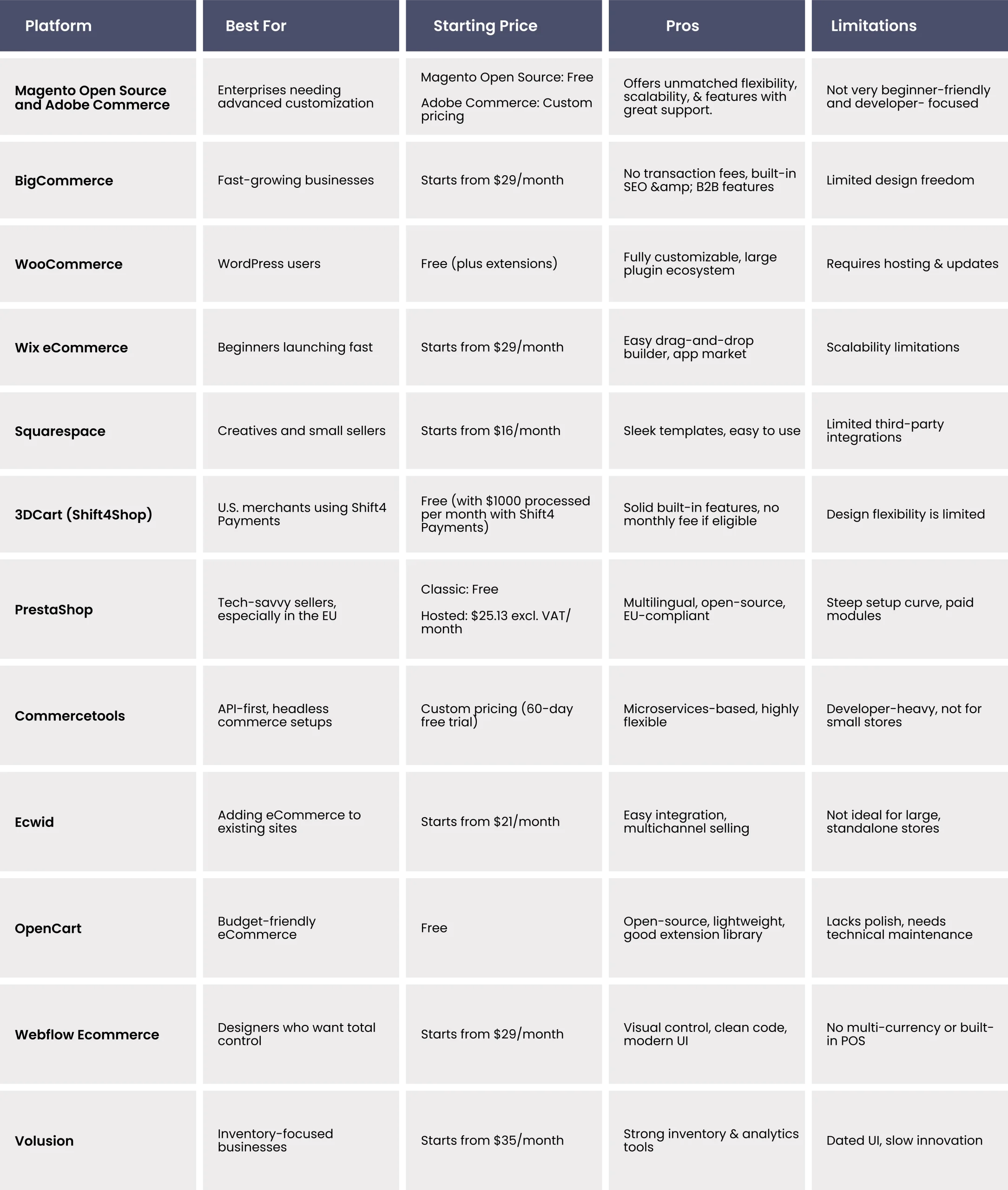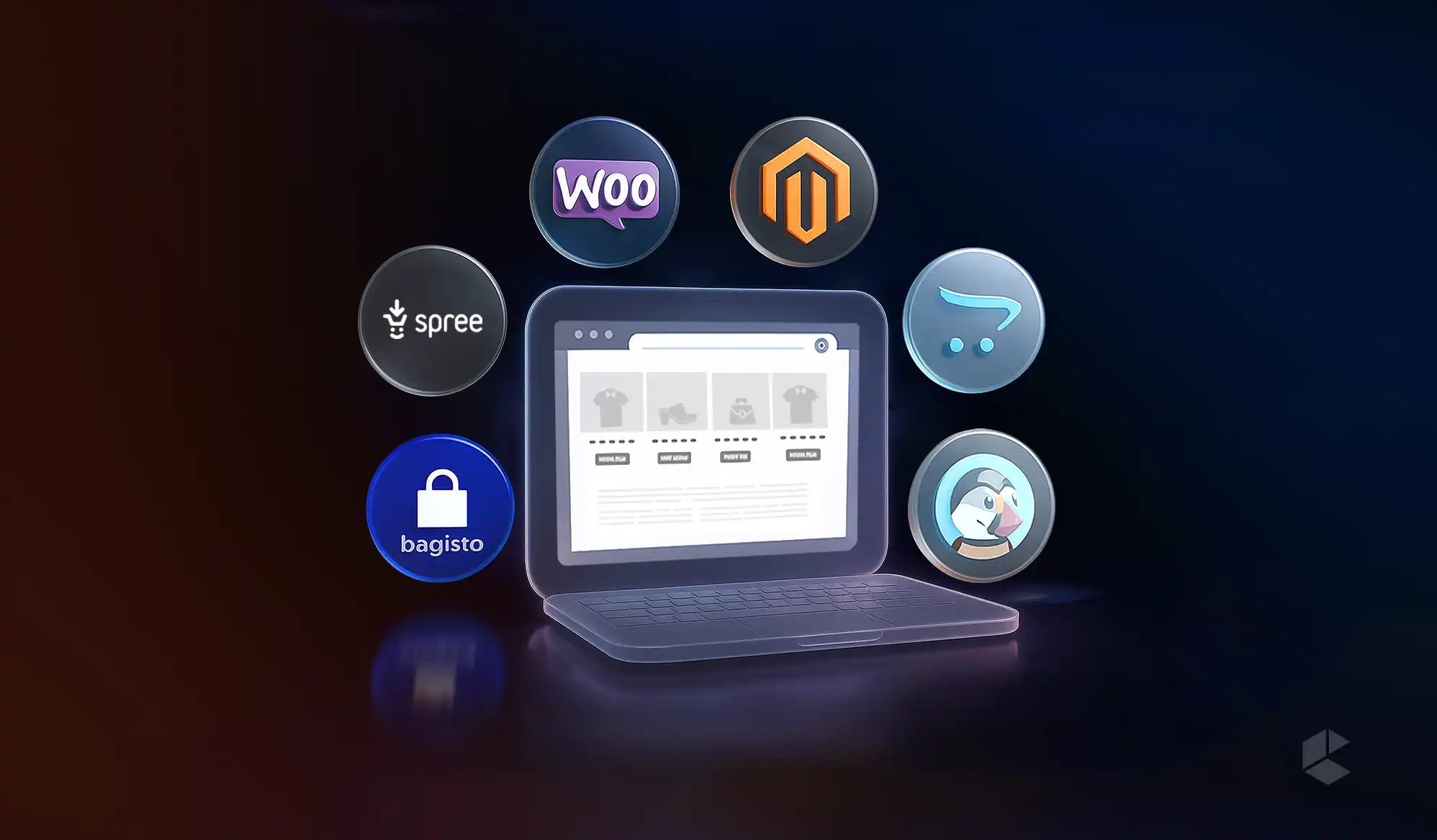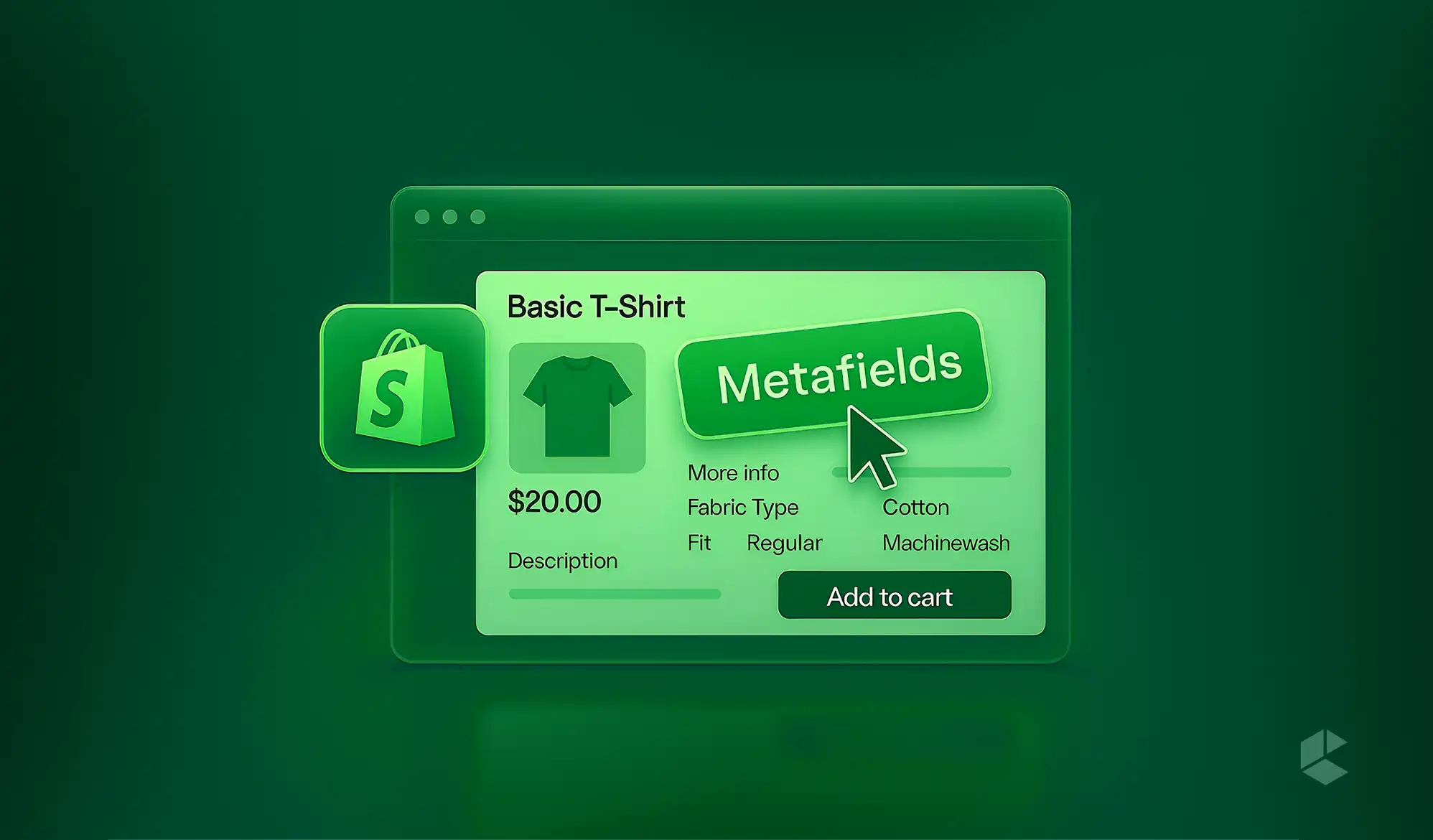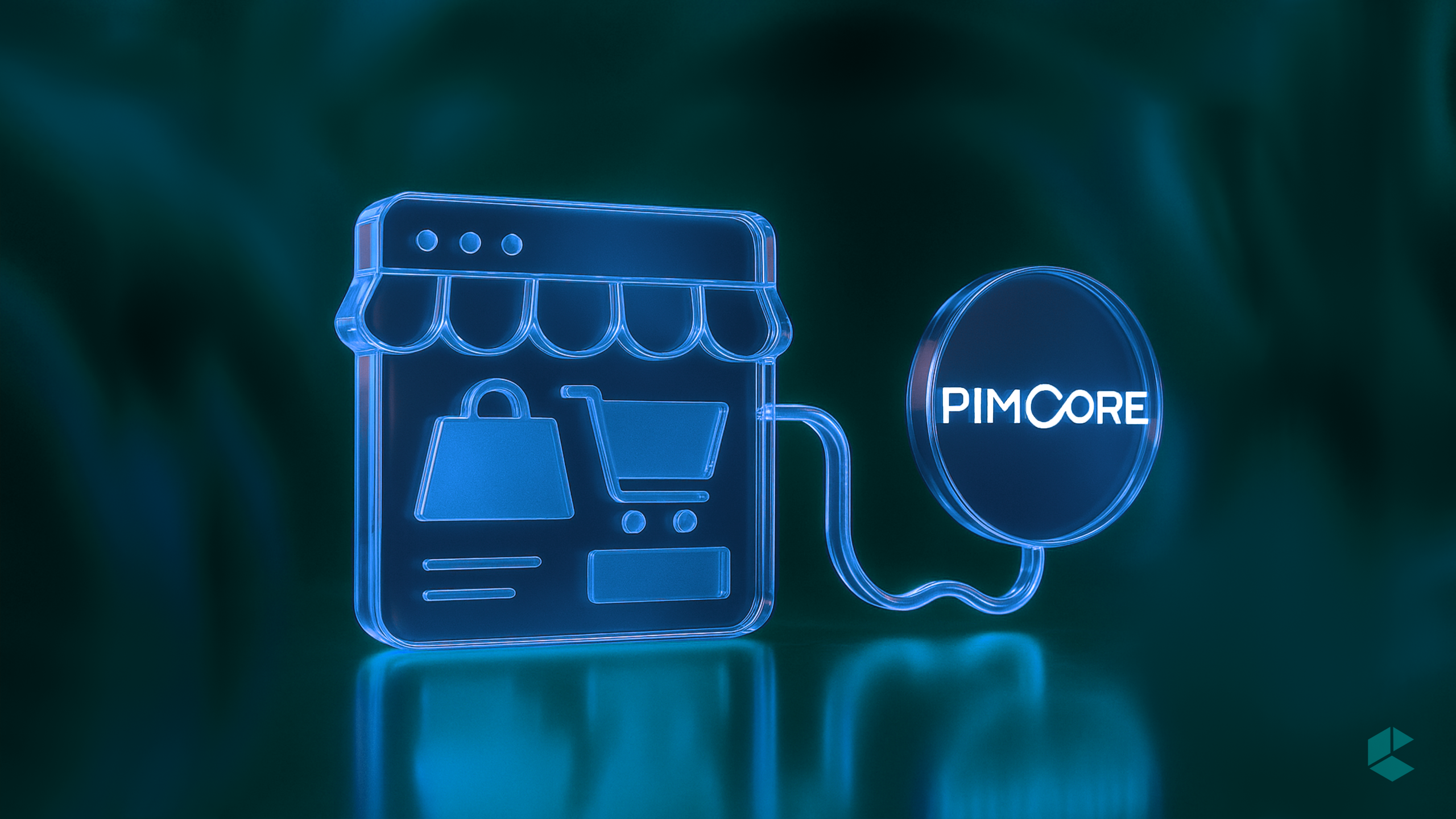- There are powerful eCommerce platforms that can be great alternatives to Shopify.
- Adobe Commerce and BigCommerce are the best choices for enterprise-level businesses.
- For users with WordPress experience, WooCommerce is an excellent pick, given its flexibility and plugin collection.
- For non-technical users with no coding experience, Wix and Squarespace are the best beginner-friendly Shopify alternatives.
- Magento Open Source, OpenCart, and PrestaShop are free and open-source alternatives to Shopify.
Shopify is the Superman of eCommerce builders – it’s got fans, features, and fame that have made it a household name among online sellers. But even Superman can come short against a kryptonite, and so can Shopify. From limited scalability, customizations, and flexibility for developers to the mounting transaction fees, Shopify does have a few aspects that force merchants to look elsewhere.
That’s exactly where the Shopify alternatives step in with solutions to your problems. Whether you need more control over customization or you don’t want your budget to bleed dry because of the monthly fees, you have various options to explore.
In this blog, we present the 13 best Shopify alternatives that can fill every Shopify shortcoming. No matter the requirement, we have a platform for you, handpicked by the experts. So, let’s not beat around the bush and get straight to the point.
What is Shopify?
Shopify is the one-stop eCommerce platform that allows you to create, customize, and manage your online store, all under one roof. The platform includes different pricing plans, ranging from Basic to Plus. Whether you’re running a startup or a growing business, Shopify has a solution for you.
The platform is packed with powerful features and tools for payments, inventory, and marketing, which make it easy for stores to grow their business and revenue. Being a fully hosted platform, Shopify makes store management a cakewalk for busy merchants, taking care of technicalities like hosting, security, etc.
Nevertheless, for those who like deep design control, more development flexibility, or want to avoid recurring transaction fees, Shopify is not a perfect fit.
13 Shopify Alternatives for Building Your Online Store
Let’s take a look at the top 13 eCommerce platforms picked by experts. Not only are these platforms widely used worldwide, but they are also packed with features, functionalities, and facilities you may be looking for.
Here’s a quick comparison before we dig deep.

1. Magento Open Source and Adobe Commerce
Magento Commerce, which was acquired by Adobe in 2018, is now rebranded as Adobe Commerce, which is probably the biggest competitor of Shopify due to its similar offerings. Like Shopify, Adobe Commerce is also a fully-hosted solution (also offers a self-hosted solution) that comes with custom pricing based on the annual GMV of a store. However, it caters to the enterprise-grade businesses with more advanced features, compared to Shopify.
On the other hand, Adobe Commerce does have an open-source option – Magento Open Source. The budget-constraint stores can leverage this platform as it’s completely free of costs.
While both platforms can manage large product catalogs and support multiple languages, currencies, and international stores, you get more advanced features and quick support with Adobe Commerce.
Moreover, with Magento Open Source, you have to manage everything on your own, from hosting to security, which adds to the final cost.
Pros:
- Highly customizable, which empowers developers to create custom shopping experiences as per the store’s needs.
- Multi-language and multi-currency support cater to the global audience seamlessly.
- Does not compromise on performance even when handling large product catalogs.
- A huge collection of third-party extensions leads to feature enhancements without any issues.
- Works great for a wide range of businesses, from startups to enterprises.
- Offers multi-channel selling on social media, marketplaces, etc.
Cons:
- Magento Open Source demands strong technical expertise to build and maintain the site.
- Development, hosting, security, and updates need to be done by the store owner or an external team, adding to responsibilities and/or expenses.
2. BigCommerce
Another hosted platform on our list, BigCommerce, is designed to grow with your business. From multi-channel selling support (marketplaces like Amazon or eBay, social media platforms like Meta and TikTok) to robust SEO tools and powerful built-in features, even on the low-tier plans, everything makes BigCommerce an exceptional alternative to Shopify for mid to large-sized businesses.
What’s more, the platform offers built-in features for flexibility, eliminating the need for third-party tools. If you want a custom frontend, BigCommerce shines as it allows headless commerce.
Pros:
- Zero transaction fees, even on low-tier plans.
- A fully hosted platform that manages hosting, security, etc.
- Intuitive built-in features eliminate dependency on third-party apps, keeping your store lightweight.
- Supports multi-channel selling across the top social media platforms and marketplaces.
- Offers an API-driven architecture that supports headless commerce for unparalleled flexibility.
Cons:
- The advanced built-in features lead to a steep learning curve.
- Comes with a yearly online sales threshold that forces merchants to upgrade plans.
- Does not have as many free design templates as Shopify.
3. WooCommerce (WordPress Plugin)
Although not technically a platform, WooCommerce is one of the most widely used free WordPress plugins that can turn any site into a customizable eCommerce store in no time! If you’re already familiar with WordPress, WooCommerce is the way to go. Not only does it offer complete control over features and designs, but it’s also highly flexible and free because of its open-source nature.
Small to mid-sized businesses that don’t want to spend a monthly platform fee can opt for WooCommerce, keeping in mind that it requires additional costs like development, hosting, security, etc.
For optimal results, consider partnering with expert WooCommerce development professionals who can tailor your store’s design, features, and performance to your business goals.
Pros:
- Integrates with WordPress effortlessly.
- Supports thousands of themes and plugins for heavy customization.
- Requires no monthly platform fees as it involves only a one-time setup cost.
- Offers unmatched flexibility for support and troubleshooting with a huge community and various documentation.
Cons:
- Needs development, hosting, security, and plugin updates separately.
- Can be intimidating for people without prior WordPress experience.
- Installing too many plugins can lead to slow performance.
4. Wix eCommerce
For those who want ease of use without compromising on aesthetics, Wix eCommerce offers stunning templates with a drag-and-drop store builder. If a small or mid-sized business prefers design and page loading time over advanced customizations, Wix is your perfect solution.
While it does fall short to the depth Shopify offers, there should not be any issue in handling common and critical store functions like managing inventory, payment gateway, product pages, etc.
Pros:
- Comes at the top when it comes to ease of use, thanks to its drag-and-drop builder.
- Features hundreds of appealing, mobile-optimized, and modern templates.
- Built-in tools for blogging, marketing, and SEO.
- Various integrations help with dropshipping and print-on-demand support.
Cons:
- Doesn’t offer enough scalability for enterprise-level businesses.
- Limited backend customizability compared to Shopify.
- Limited third-party apps.
5. Squarespace
A visually-driven platform with sleek templates and a simple interface, Squarespace is ideal for small business owners and creatives. You can get decent eCommerce features and functionalities like inventory tracking, digital product selling, and integrated payment options.
This platform, due to its aesthetic appeal, makes perfect sense for photographers, artists, and minimalist brands without a large catalog.
Pros:
- Features award-winning templates that add to the aesthetics of a brand.
- Comes with built-in tools for email marketing and scheduling.
- Works exceptionally well for selling digital products like courses or art.
- Requires no technical knowledge, thanks to its easy-to-use interface.
Cons:
- Isn’t meant for complex or large product catalogs.
- Doesn’t offer a lot of payment gateway options as it only includes PayPal and Stripe.
- Limited customization options if you compare it with open-source platforms.
6. 3DCart (Now Shift4Shop)
3DCart, which rebranded itself as Shift4Shop is the best eCommerce development platform for those who are more technically inclined. With dozens of free themes, a wide range of payment processor support, and built-in SEO tools, it’s an amazing catch as a Shopify alternative.
If you are a US-based merchant using Shift4 payments, you get free access to its core version!
Pros:
- Free access to core features for US merchants using Shift4 payments.
- Templates that support fast page loads along with powerful SEO features.
- Bulk editing for advanced product management.
- Supports various third-party payment gateway integration.
Cons:
- UI may feel a bit outdated if you compare it with modern builders.
- Non-technical users may find it intimidating.
- The reviews on Shift4Shop’s customer support are mixed with slow response time.
7. Salesforce Commerce Cloud
Salesforce Commerce Cloud is designed to deliver enterprise-grade eCommerce solutions for rapidly growing brands. Being a part of the Salesforce ecosystem, it offers advanced features and functionalities, from AI recommendations to unmatched personalization and integrated CRM functionalities. It can be used for unified commerce across different channels, from online to in-store and mobile.
Although complex for non-technical users, it’s a powerful tool to boost your digital commerce experience.
Pros:
- AI-powered product recommendations and personalization.
- Full integration with Salesforce CRM and marketing tools.
- Highly scalable infrastructure that supports enterprise-grade operations and traffic.
- Omnichannel commerce capabilities along with advanced analytics.
Cons:
- Pricing is on the higher side and tailored to large enterprises.
- Requires a dedicated team of tech experts for implementation and maintenance.
- Not suited for small or medium-sized businesses with basic requirements.
8. PrestaShop
Yet another free and open-source eCommerce platform on our list, PrestaShop has gained immense popularity among European small businesses. Along with its open-source nature that makes it free to use, the modular structure of the platform has made it a merchant favorite as they can browse through thousands of add-ons to add advanced features with ease.
Although you have to take care of hosting, security, and other updates, it offers you full control over performance and customizations. If you want a Shopify alternative minus the license fees, PrestaShop can be a worthwhile option to consider.
Pros:
- The open-source nature makes it completely free to download and set up.
- The modular architecture of the platform makes it highly scalable and flexible.
- Multilingual support and a huge global community.
- Works incredibly well for stores that operate globally with complex tax requirements.
Cons:
- Using the platform requires technical knowledge and self-hosting.
- Needs upgrading to paid modules to access many essential features.
- Only community posts and forums are the main sources for troubleshooting and support.
9. Commercetools
Meeting modern enterprise requirements, Commercetools is a robust headless commerce platform. Thanks to the headless architecture, it allows brands to offer fully customized shopping experiences by separating the front-end and back-end. Not only does it support omnichannel commerce, but it also uses APIs to get easily integrated with various other tools.
Although it offers lightning-fast performance and unmatched flexibility, using it requires a fair amount of technical knowledge.
Pros:
- Offers unlimited customizations and scalability, thanks to the API-first architecture.
- Offers omnichannel support and complex product catalog management.
- Offers unmatched flexibility with headless commerce.
- Easy integration with CMS, ERP, and marketing tools.
Cons:
- Requires developer involvement; not appropriate for non-technical users.
- Designed for enterprise-grade businesses, making it expensive.
- A custom front-end is mandatory.
10. Ecwid
If you’re looking for a lightweight eCommerce solution, Ecwid can be the perfect fit as it allows you to easily add your store to an existing website, marketplace, or social media. With Ecwid, you don’t need a dedicated site as it can embed a shopping cart to your existing site.
For small stores or beginners, Ecwid is an excellent solution, offering a simple and affordable setup.
Pros:
- Easy integration into any existing website or social media pages.
- Comes with a lifetime-free plan for basic selling requirements.
- Requires minimal learning curve with a simple interface.
- You can sell across multiple channels, from Instagram to Facebook and more.
Cons:
- Not made for complex operations or large product collections.
- The basic, free plan doesn’t offer higher customizations.
- Relies on existing website infrastructure.
11. OpenCart
Users who need complete control over their eCommerce store may also consider OpenCart. This open-source platform is not only free, but it offers a simple admin interface while being lightweight and highly customizable.
For developers and tech-savvy merchants, OpenCart emerges as an excellent solution, thanks to the thousands of available extensions that can even enhance the OpenCart stores further.
Pros:
- A huge collection of extensions helps enhance the stores.
- The lightweight nature of the platform makes it effortless to run it on basic hosting solutions.
- Great for building custom stores without spending much.
- Does not involve any recurring transaction or licensing fees.
Cons:
- Failure to do regular maintenance or version control may lead to buggy experiences.
- Manual managing of security, hosting, and updates.
- The out-of-the-box themes may not meet the modern taste.
12. Webflow Ecommerce
Webflow Ecommerce is the perfect tool for those who want to sell online but need control over every pixel of their store design. Blending the goodness of custom storefront design with visual website development, this platform includes various intuitive features, from CMS-like capabilities to custom animations and dynamic content.
Artists, small businesses, and agencies can leverage Webflow Ecommerce to pair commerce with branding.
Pros:
- The visual editor offers unmatched control over design.
- Even animations and complex layouts require zero coding.
- Enjoy a content-driven, dynamic eCommerce store with built-in CMS.
- Clean code output ensures lightning-fast sites with SEO optimization.
Cons:
- The eCommerce features may feel limited when compared with Shopify and other full-scale platforms.
- Adding more orders and products can make the pricing steeper.
- Does not come with built-in multi-currency or multi-language support.
13. Volusion
Volusion is an all-in-one eCommerce solution that comes fully hosted. From product management and marketing to online store setup, Volusion lets you do everything with ease. A major name in the past, now it primarily caters to the small businesses in need of a structured and affordable eCommerce platform. Despite featuring various built-in tools, it still lacks modern designs and features.
Pros:
- One-stop solution that includes SEO, inventory, and analytics tools.
- Requires zero transaction fees, regardless of the plan.
- The easy-to-use dashboard and product editor simplify store management.
Cons:
- The templates are not modern.
- The checkout experience feels clunky.
- Users don’t get built-in content marketing support or blogging tools.
- Comes with limited integration options.
Conclusion
There is no such thing as one “best” Shopify alternative that can singlehandedly transform your online store. Your pick for the replacement of Shopify would depend on the platform that fits your business requirements. First, determine what your use case is and where you find Shopify lagging behind. Find a Shopify alternative that checks all the boxes on your list, and go for it.
Consider pricing, technical expertise, modern features, future updates, security, support, and whatever you feel is necessary.
Regardless of what your criteria are, you will find a platform from the list we have made. Read properly and do your own research – your next best store is not far away.











